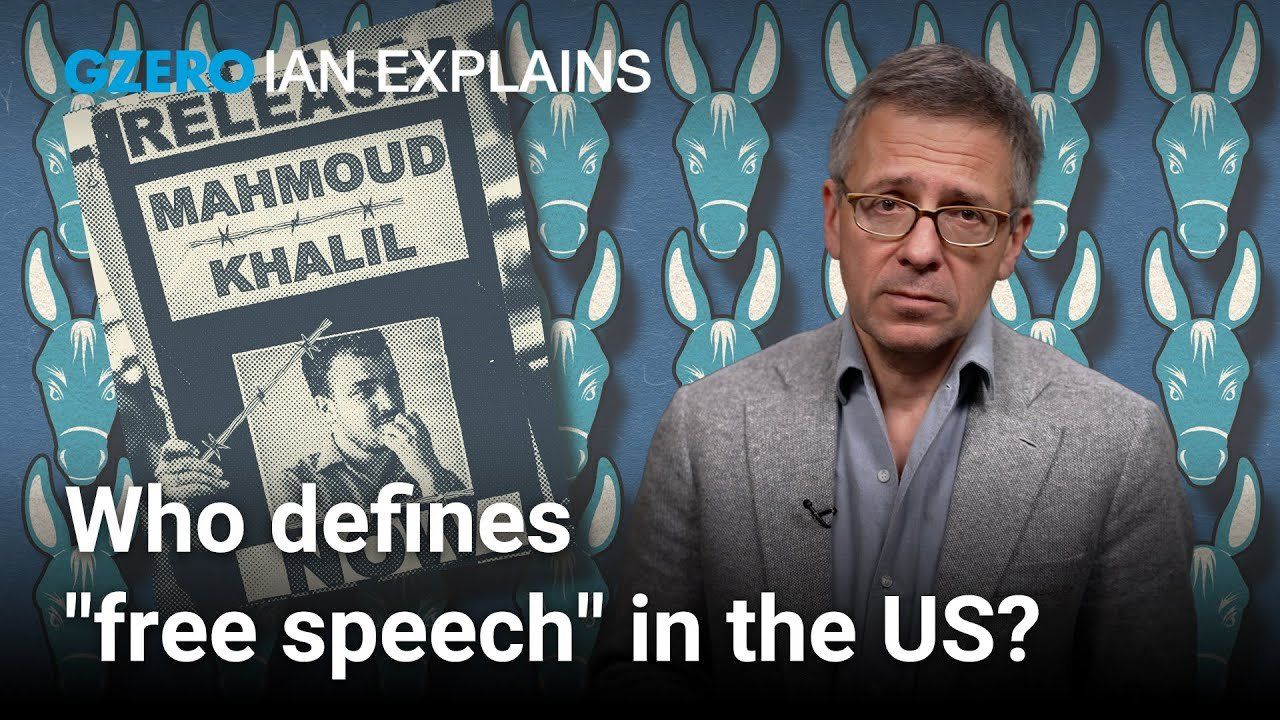May 02, 2025
In the United States today, the right to free speech is enshrined in the Constitution, but that doesn’t mean everyone agrees on what it looks like in practice. On Ian Explains, Ian Bremmer opens with a landmark case: when neo-Nazis won the right to march through a Holocaust survivor community in Skokie, Illinois. The decision was controversial but helped define modern free speech as “ugly, uncomfortable, and messy,” yet fundamental to American democracy. Today, that foundational idea is once again being tested—on college campuses, in immigration courts, and in the rhetoric of both political parties.
Republicans have embraced free speech as a culture war rallying cry, using it to combat what they see as liberal censorship on college campuses and social media. Donald Trump even signed an executive order on his first day back in office aimed at curbing government interference in free speech. But Democrats argue that the same administration is now weaponizing federal power, targeting foreign students, threatening university funding, and punishing dissenting voices in ways that undermine the very freedoms it claims to defend.
Both parties claim to be protecting free speech, just not the same kind.
GZERO World with Ian Bremmer, the award-winning weekly global affairs series, airs nationwide on US public television stations (check local listings).
New digital episodes of GZERO World are released every Monday on YouTube. Don't miss an episode: subscribe to GZERO's YouTube channel and turn on notifications (🔔).GZERO World with Ian Bremmer airs on US public television weekly - check local listings.
From Your Site Articles
More For You
- YouTube
Is Venezuela entering a real transition or just a more volatile phase of strongman politics? In GZERO’s 2026 Top Risks livestream, Risa Grais-Targow, Director for Latin America at Eurasia Group, examines Delcy Rodríguez’s role as Venezuela's interim president after Nicolás Maduro.
Most Popular
It’s been just over 48 hours since US forces conducted a military operation in Caracas and seized Venezuelan strongman Nicolás Maduro, and the future governance of the country – and the US role in it – remains murky.
© 2025 GZERO Media. All Rights Reserved | A Eurasia Group media company.
